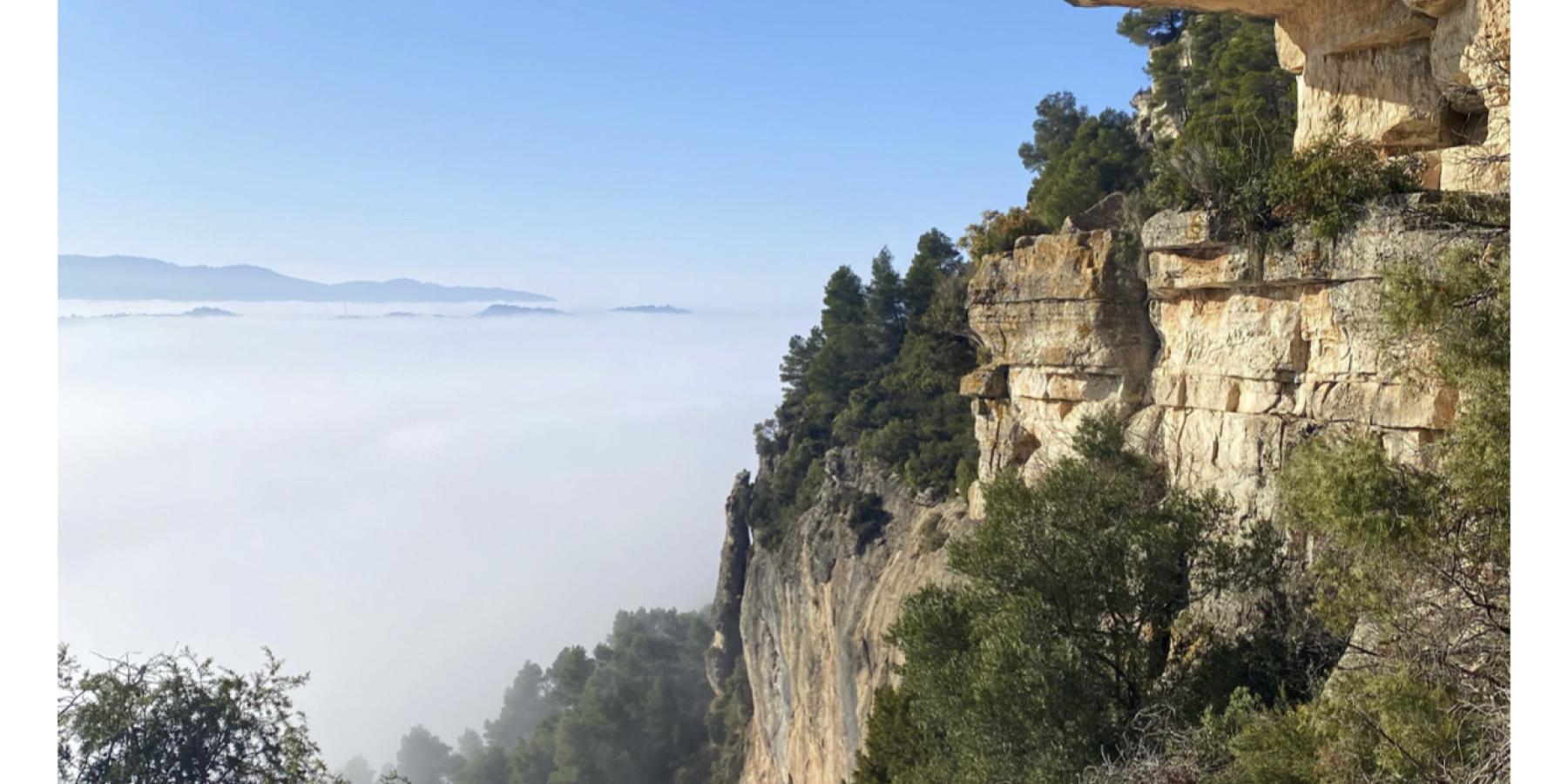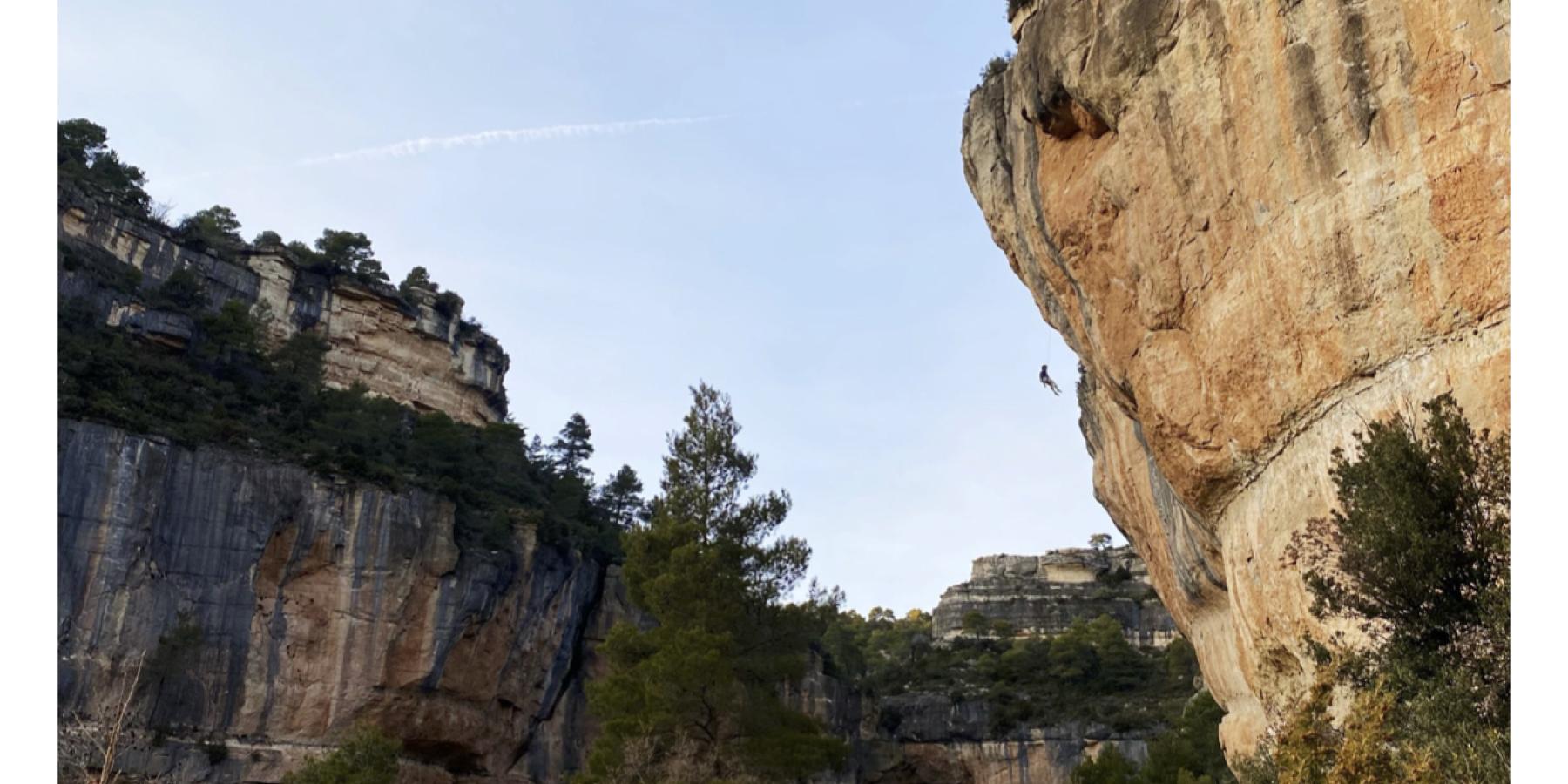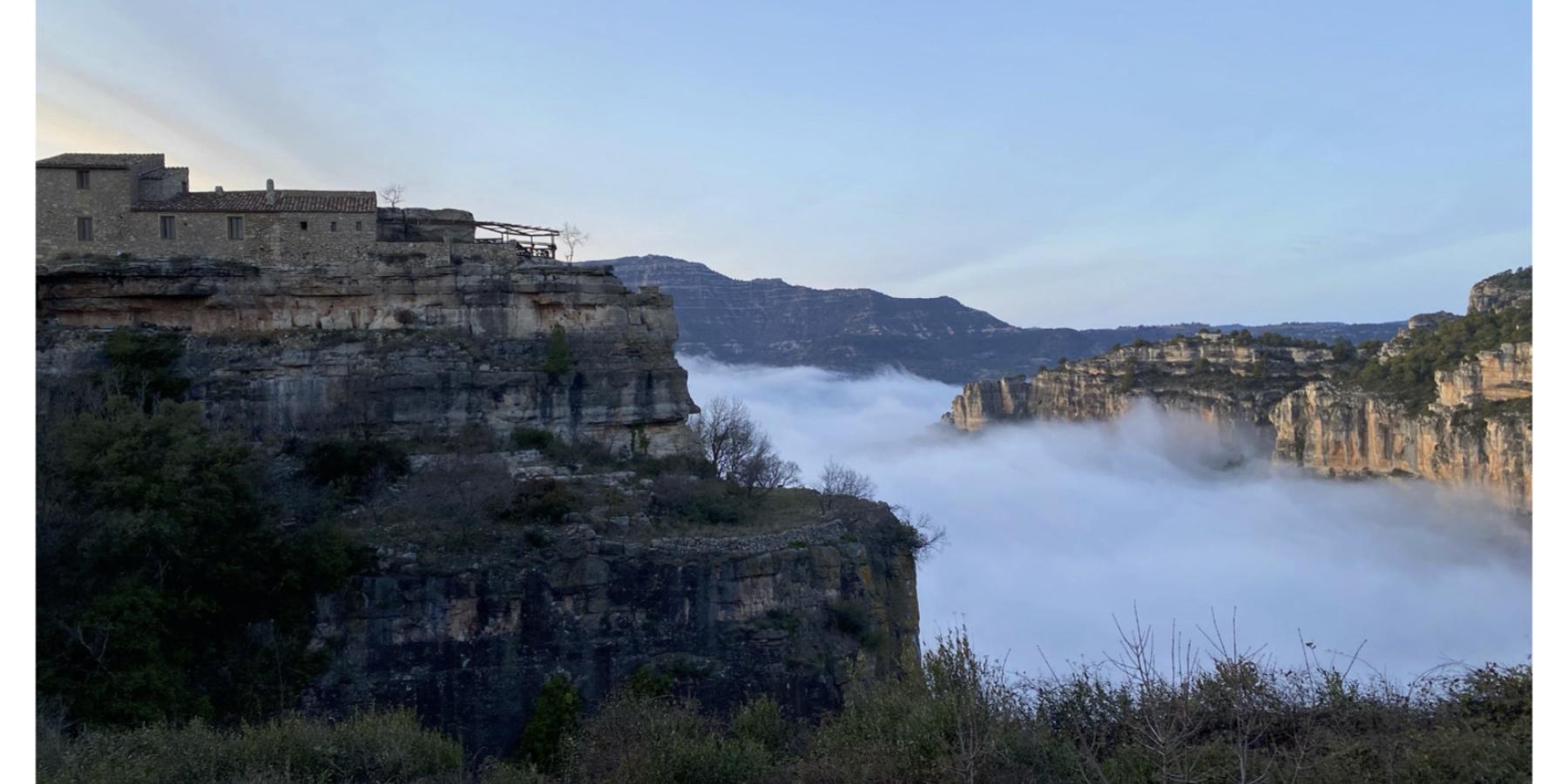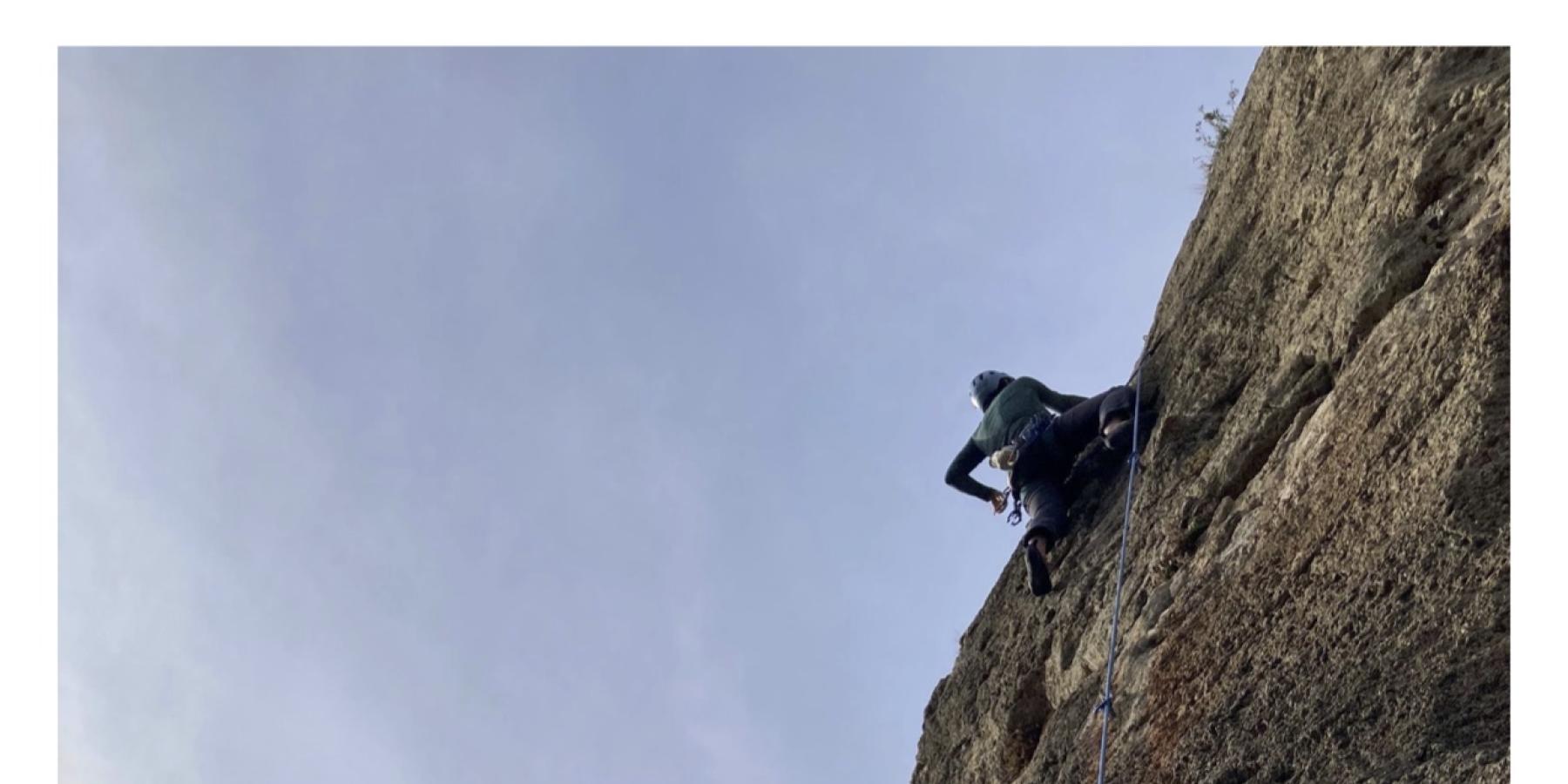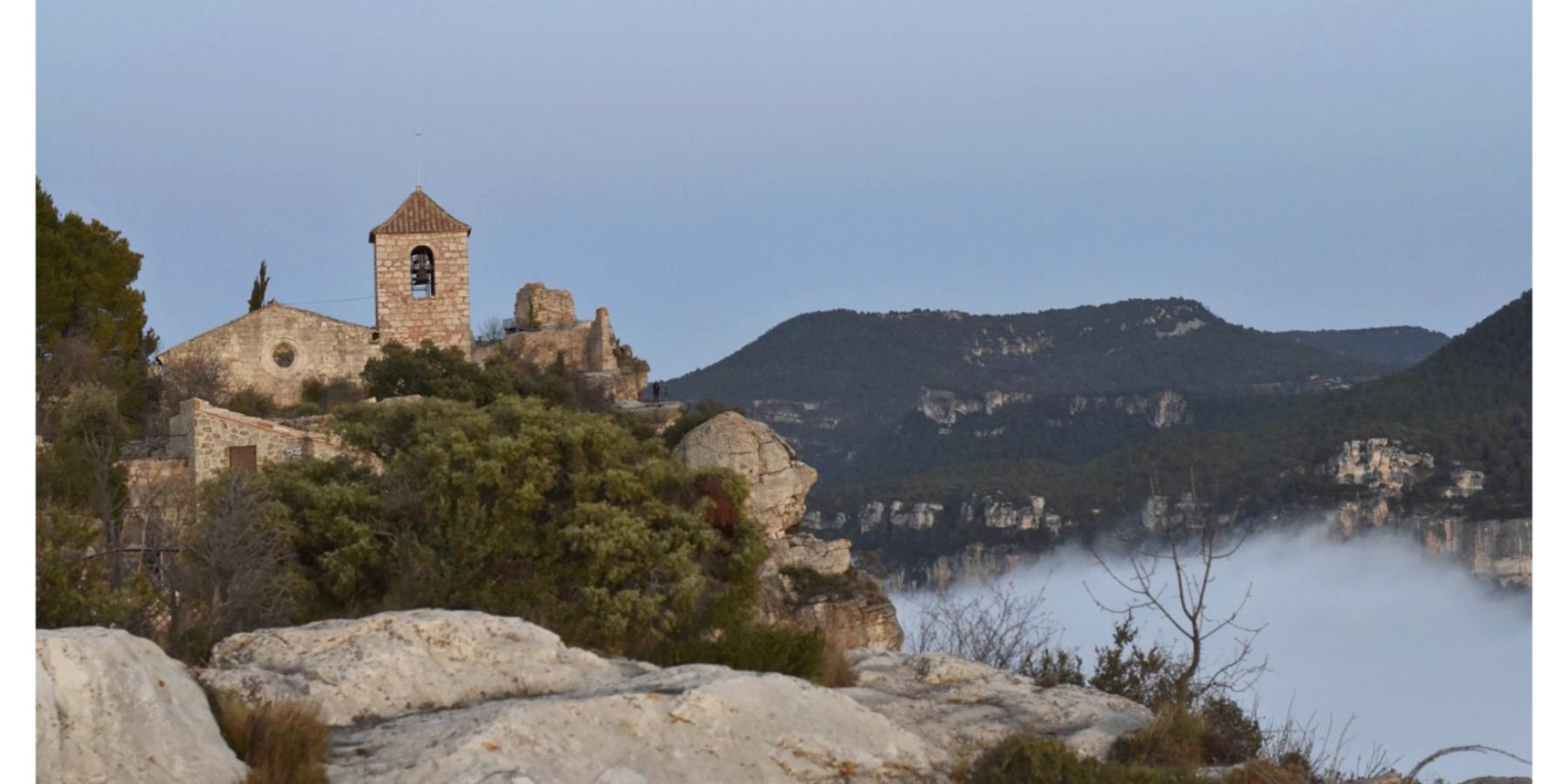Support
In mid-December 2021 I said goodbye to my host family, friends, and professors and traveled from Madrid to a very small area called Siurana in the Autonomous Community of Catalonia (Catalunya in Catalan and Cataluña in Spanish). The trip proved to be a spectacular celebratory end to my semester abroad on St. Lawrence’s Spain program, and allowed me to say farewell to Spain in a very special way.
The main objective of the trip was to rock climb in Siurana, which is known as a world-class sport climbing destination. My partner Ryan joined me on this journey as my climbing partner, and the two of us spent four days climbing at four or five different crags (climbing areas/ walls) in the region and getting on over a dozen different routes. We stayed in a cabin at a campground designated specifically for rock climbers called Camping Siurana. The tiny village of Siurana itself is situated within the municipality of Cornudella de Montsant, and sits atop steep cliffs in a rural, mountainous area just an hour and a half southwest of Barcelona.
In addition to exploring the different crags and routes and appreciating the natural beauty of the region, we also explored the village and surrounding area and learned that Siurana was once the last Muslim stronghold of Catalonia during the Christian Reconquest, or Reconquista, of Spain in the 12th century. Siurana had been a stronghold of the Moors for over three hundred years was able to maintain its independence largely due to its inaccessible location. While in the village we were able to see the remnants of the centuries-old Moorish castle atop the hill.
I was also able to make some observations about climbing culture and rural Catalonian culture through my daily experiences on this trip. As a Global Studies major, I was able to make several connections between the recreational experience I had and larger global processes. Based on my knowledge and experience gathered from previous climbing trips I have been on in the United States and Canada, I realized that European climbing culture seemed very similar in many ways to the U.S. climbing culture I am familiar with. We observed other climbers staying at the campground while walking around and eating in the restaurant/gathering place and noticed that many of them came from different places around Europe, as well as China. Many of us shared similar clothing styles and gear, and the “van life” culture seemed to be very prevalent among these climbers as well. This refers to a trend where climbers or other outdoor enthusiasts renovate and outfit a van that they can travel in and also live out of either long-term or temporarily when on trips. On one evening we traveled down the mountain a short way to the aforementioned town of Cornudella de Monstant and got a snack at the well-known gear shop/restaurant/bar called Goma II. While the rest of town seemed relatively quiet and empty, the restaurant was full of climbers. The atmosphere was reminiscent of many climber-oriented spaces I have been to in the U.S., and seemed almost out-of-place in a town as small as Monstant with its posters and colorful gear. These observations lend themselves well to achieving Global Studies learning goals, especially those dealing with relationality and the relationship between local and global flows. Based on the observations made during my travel experience, it seems that while climbing culture is not universal, many aspects of it do permeate global boundaries and introduce shared customs to areas that may not otherwise be sites of this particular kind of exchange.
From a political-economic perspective, this trips also made me think about rock climbing’s impact on local economies and their cultural relationship to industry. We noticed that there are several mining operations as well as very small farms in the region. The village and town themselves have stores with minimal food items, and we unexpectedly drove forty-five minutes one day to the nearby small city of Reus in order to go grocery shopping. This led me to think about how tourism, from climbers in particular, most likely majorly supports the region’s economy. One of the trails we used to access some of the crags in Siurana began on the property of a small farm on the cliffside and wove its way down and around it. This made me think especially of how different individuals and groups of people use land for different purposes, and that tensions and/or alliances often arise from the overlap between different processes and spaces such as tourism and agriculture or the rural and the urban.
Finally, this experience also allowed me to learn firsthand a little bit more about the deeply rooted cultural-political tensions between Catalonia and the rest of Spain. This is a topic that I have learned about throughout my years of studying Spanish both on campus and through my classes in Madrid. While the campground employees spoke Spanish, they seemed much more used to speaking Catalan. One day, I was conversing with the groundskeeper, and he asked me if it was my first time visiting. I explained that it was my first time in Siurana, but that I had already been living in Spain for four months and had visited once before as well. He told me (in Spanish), “No, no...‘Spain’ is a different thing.” From his perspective, which is shared by many if not most Catalonians, Catalonia did not constitute Spain and was in fact entirely separate from it.
